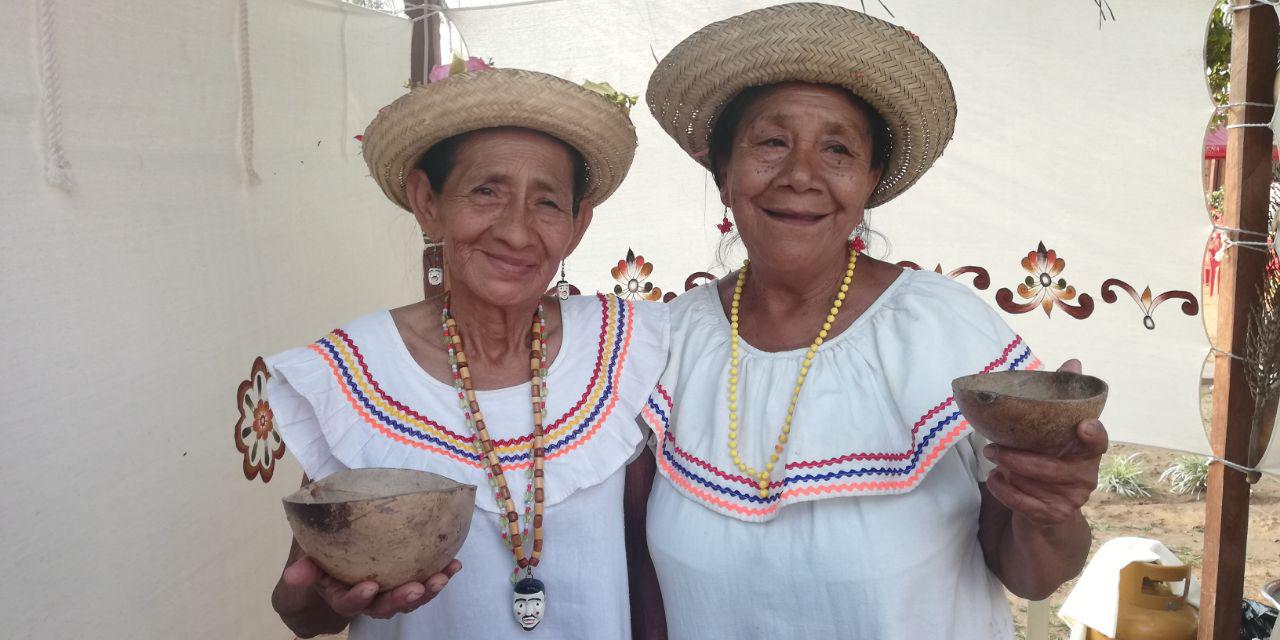What is RFG? It entails studying, revaluing and reinforcing the territorial kitchen’s identity, including its products and plates. It takes into account the local history, culture, legends, customs, gastronomy, tools and food transformation techniques by presenting a palpable experience for locals and visitors.
MIGA and its cañahua mission
MIGA has been working for years to revitalize and commercialize cañahua, an indigenous Andean grain similar to quinoa. Their work with this grain, which Hivos and IIED supports, is a great example of RFG.
In May 2018, MIGA held the event ‘Sowing encounters of flavors and knowledge” – Sembrando Encuentros de Saberes y Sabores – in partnership with the Inter-American Institute for Cooperation on Agriculture (IICA). This brought together manufacturers, cooks, gastronomy school representatives and cañahua producers from the Cañahua Samiri farm. Parties agreed on directly commercializing cañahua for restaurants and manufacturing company use. Some of the results of direct commercialization include family production strengthening, cañahua incorporation in city stores as well as collective appreciation for this Andean grain.
This multistakeholder process and agreement exemplifies Hivos and IIED’s own strategy, that is to include more voices and alliances in the promotion of indigenous and sustainable food. And the important RFG work doesn’t stop with the cañahua either, as seen in the Posoka and Tambo festivals, respectively.
Posoka’s storytelling experience
The purpose of MIGA’s Posoka festival is to further revitalize Bolivian regional food heritage, showcasing people and their food stories. The festival includes events like cooking shows, a market, diverse cultural side-presentations and a symposium. It is carried out every year together with a local NGO, Centro de Promoción Agropecuaria Campesina (CEPAC) in the Bolivian Jesuit Missions.
In 2018, the movement and local partners developed a gastronomic ecosystem tour within the festival. Each food highlight is then embodied, told and showed by a member of the community who is keeping the heritage alive. They demonstrate often simple, everyday preparations that are beginning to disappear.

Tambo’s long life
The Tambo festival is another gastronomic event that has been held for the last 7 years. It brings together producers and gastronomy actors working to revive and maintain Bolivian food heritage. The event has been growing in popularity and size over recent years and receives private and public support.
This year it will take place in La Paz with the purpose of promoting more sustainable food systems and involving more actors. The 2019 festival targets 5 areas of work: culture and knowledge (forums and debate), gastronomic diversity, local food nutritional heritage, business, and the market.
Many coalitions have been set up to support the festival. Among them are MIGA, Fundación Alternativas and La Casa de les Ningunes—all of the Hivos-IIED Sustainable Diets for All local partners.
The examples shown herein are simply a snapshot of what MIGA, Hivos and IIED are doing with partners as part of the larger Regional Food Heritage approach. The approach puts locals, their experiences and knowledge first and has led to transparent dialogue and processes that create confidence among chefs, manufacturers and producers. It also promotes sustainable chains that secure the value of these products as part of Bolivia’s rich food heritage. Overall, RFG is a powerful strategy for making people fall (back) in love with their indigenous foods.








